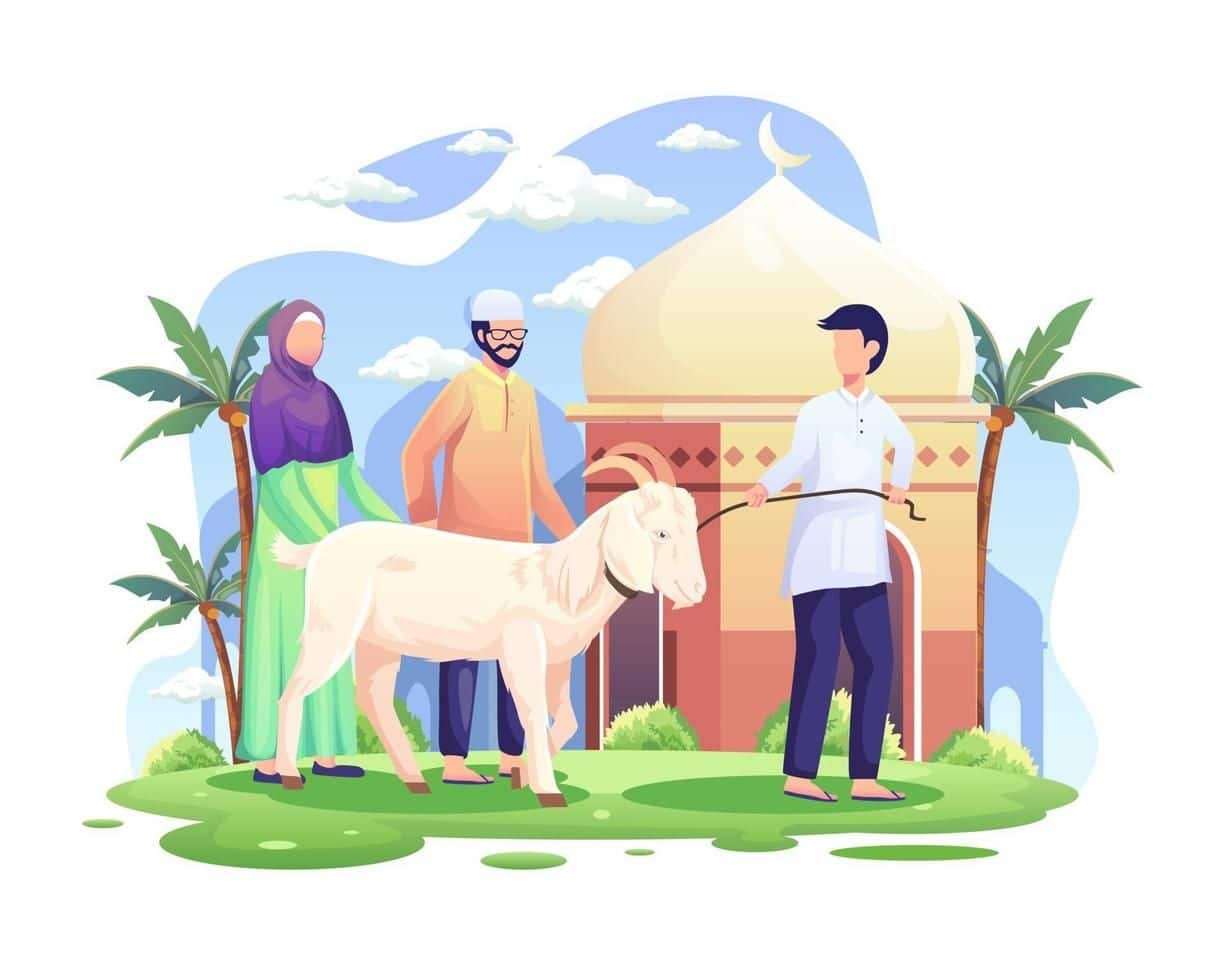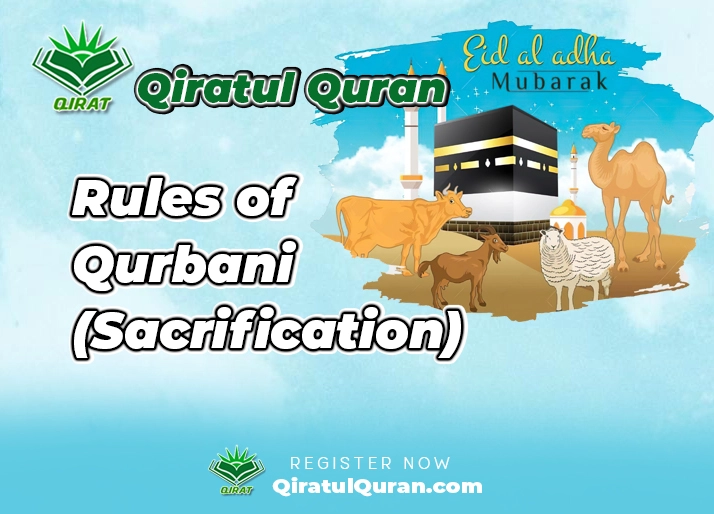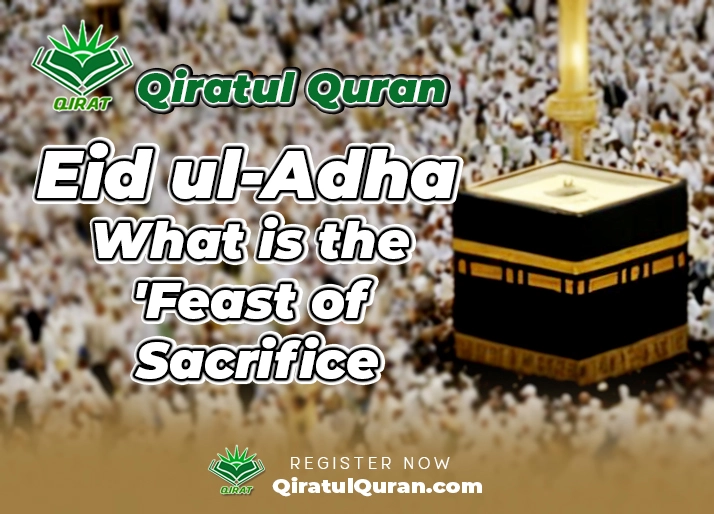Why Qurbani is Important in Islam

At Qiratul Quran, we believe in providing comprehensive and insightful information about religious practices and rituals. In this article, we will discuss about, Why Do Muslims Sacrifice Animals in Eid ul Adha, also known as the Festival of Sacrifice. By exploring the historical and cultural context, as well as the spiritual and symbolic aspects of this ritual, we aim to offer a detailed understanding of why Muslims worldwide engage in animal sacrifice during this important festival.
Historical Background
To comprehend the reasons behind, Why Do Muslims Sacrifice Animals in Eid-ul-Adha, it is crucial to reflect upon its historical origins. The roots of this practice can be traced back to the story of the Prophet Ibrahim (Abraham) as described in Islamic tradition. According to the narrative, Ibrahim A.S was commanded by Allah (God) to sacrifice his son as a test of his faith. As Ibrahim A.S about to sacrifice his son, Allah intervened and provided a ram as a substitute for his son. This act of divine intervention is commemorated during Eid-ul-Adha through the ritualistic sacrifice of animals.
The Essence of Sacrifice
The act of animal sacrifice in Eid-ul-Adha holds deep symbolic significance for Muslims worldwide. It serves as a reminder of Ibrahim’s unwavering obedience and willingness to submit to Allah’s command. Through this act, Muslims express their devotion, humility, and readiness to make sacrifices in the path of Allah.
Strengthening the Sense of Community
Eid-ul-Adha is not solely about the individual’s relationship with Allah but also about fostering a sense of unity and compassion within the Muslim community. The sacrificial meat from Eid-ul-Adha is distributed among family, friends, neighbors, and those in need. This act of sharing symbolizes generosity, kindness, and solidarity, promoting social cohesion and bonding among Muslims.
Connection to Islamic Principles
Animal sacrifice during Eid-ul-Adha is deeply rooted in Islamic teachings and principles. It exemplifies the importance of sincerity, gratitude, and selflessness. Muslims view this ritual as an opportunity to express their gratitude to Allah for his blessings and provisions. It also reminds individuals of worldly possessions and encourages them to prioritize their spiritual journey above materialistic pursuits.
Ethical Considerations
While animal sacrifice is an integral part of Eid-ul-Adha, it is essential to address ethical considerations surrounding this practice. Islam emphasizes the humane treatment of animals, and it is incumbent upon Muslims to ensure that the animals are treated with respect, compassion, and dignity throughout the process. Ritual slaughter guidelines are followed, which include using a sharp instrument to minimize pain and discomfort for the animal.
FAQs (Frequently Asked Questions)
1. Is animal sacrifice obligatory for all Muslims on Eid ul Adha?
No, animal sacrifice is not obligatory for every individual Muslim. It is a recommended practice for those who are financially capable and meet certain criteria.
2. Are there specific guidelines for performing animal sacrifice?
Yes, there are specific guidelines and principles that Muslims follow when performing animal sacrifice. These guidelines ensure the well-being of the animal and emphasize humane treatment.
3. What happens to the meat after the sacrifice?
The meat of Sacrificed animals will be divided into three parts: one-third will be given to the family, one-third is shared with friends and your near by neighbors, and one-third is distributed among the less fortunate and those in need.
4. Can Muslims perform the sacrifice in countries where it is not permitted?
Muslims in countries where the public slaughter of animals is not permitted can arrange to perform the sacrifice through authorized channels or organizations that adhere to the guidelines of halal slaughter.
5. Are there any alternatives to animal sacrifice on Eid ul Adha?
For those who are unable or choose not to perform the animal sacrifice, there are alternative ways to participate in the spirit of Eid ul Adha, such as making charitable donations or engaging in acts of kindness and service to others.




